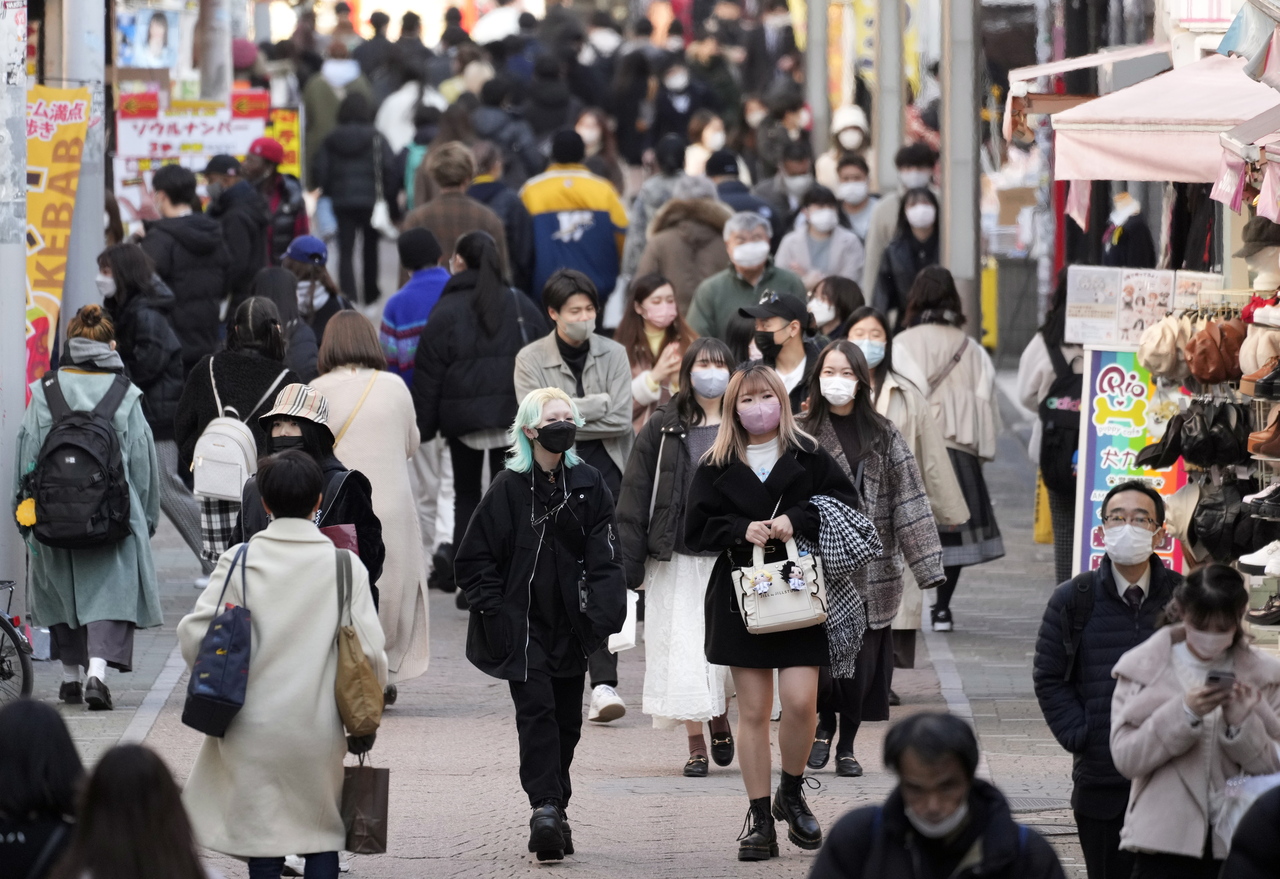Japan prolongs quasi-emergency over Tokyo while hoping that end is in sight
Sign up now: Get ST's newsletters delivered to your inbox

The extension prolongs the quasi-emergency in Tokyo and 12 other prefectures to March 6.
PHOTO: EPA-EFE
Follow topic:
TOKYO - Japanese Prime Minister Fumio Kishida on Thursday (Feb 10) extended by three weeks a quasi-emergency over Tokyo and other areas that was due to end on Sunday (Feb 13).
He said that the pace of increase in Covid-19 infections was "clearly slowing", amid hopes that the sixth wave of the pandemic driven by the Omicron variant may have peaked.
Tokyo recorded 18,891 cases on Thursday, bringing its seven-day case average to 1.05 times that of the week before. This is down markedly from 1.45 times and 2.18 times in the preceding weeks, with similar trends recorded in other areas such as Okinawa.
Booster vaccinations, meanwhile, are gradually being ramped up, with more than 800,000 doses being administered daily now. This is up from just 300,000 shots a day two weeks ago, though just 7.9 per cent of Japan's population has been triple-dosed.
Still, the silver lining belies some dire statistics. The single-day Covid-19 death toll had been broken for three straight days as at Thursday, with 164 deaths in Japan.
Some 1,270 patients are now in serious condition nationwide, while single-day Covid-19 records continue to tumble in five prefectures, including Hokkaido, Chiba and Hyogo.
The number of Covid-19 patients recovering at home has surged to new highs that are more than twice the Health Ministry's worst-case projections, with nearly 435,000 patients as at Feb 2.
With hospitals overstretched, the Fire and Disaster Management Agency said that emergency responders were unable to find a hospital for patients in a record 5,469 cases in the week that ended on Sunday (Feb 6), in the fourth straight record-shattering week.
Police said on Thursday that 151 Covid-19 patients died while recuperating at home last month, a figure that was second only to the 250 patients in August during the height of the Delta wave.
This week, the virus infected the first imperial family member - Princess Yoko, 38, daughter of a cousin of Emperor Emeritus Akihito, tested positive on Tuesday.
With an eye on the economy, Mr Kishida has taken a relatively piecemeal approach to combat the sixth wave, with staggered quasi-emergency measures that began in three prefectures and progressively expanded to 36 out of the country's 47 prefectures.
Thursday's extension prolongs the quasi-emergency in Tokyo and 12 other prefectures to March 6, with Kochi newly added to the list.
Measures in another 21 prefectures, including Hokkaido, Osaka and Fukuoka, are due to expire on Feb 20, and any decision on an extension will come only next week.
Mr Kishida is facing a growing struggle to safeguard business interests while ensuring that medical institutions do not get overburdened.
Business sentiment worsened for the first time in five months, by the steepest margin since the aftermath of the Fukushima disaster, a government survey done from Jan 25 to 31 has shown. The index fell 19.6 points from December to 37.9.
Foreign business chambers, as well as domestic economic lobby groups like the influential Keidanren, have urged Mr Kishida to loosen border restrictions on the basis that what was announced in November to keep Omicron out now looks anachronistic as the variant is already spreading rapidly.
Many foreign students, locked out of the country, have forsaken their dreams of studying in Japan, with some protesting outside Japanese embassies worldwide.
Mr Kishida has, however, said that borders will remain closed until at least the end of the month.

